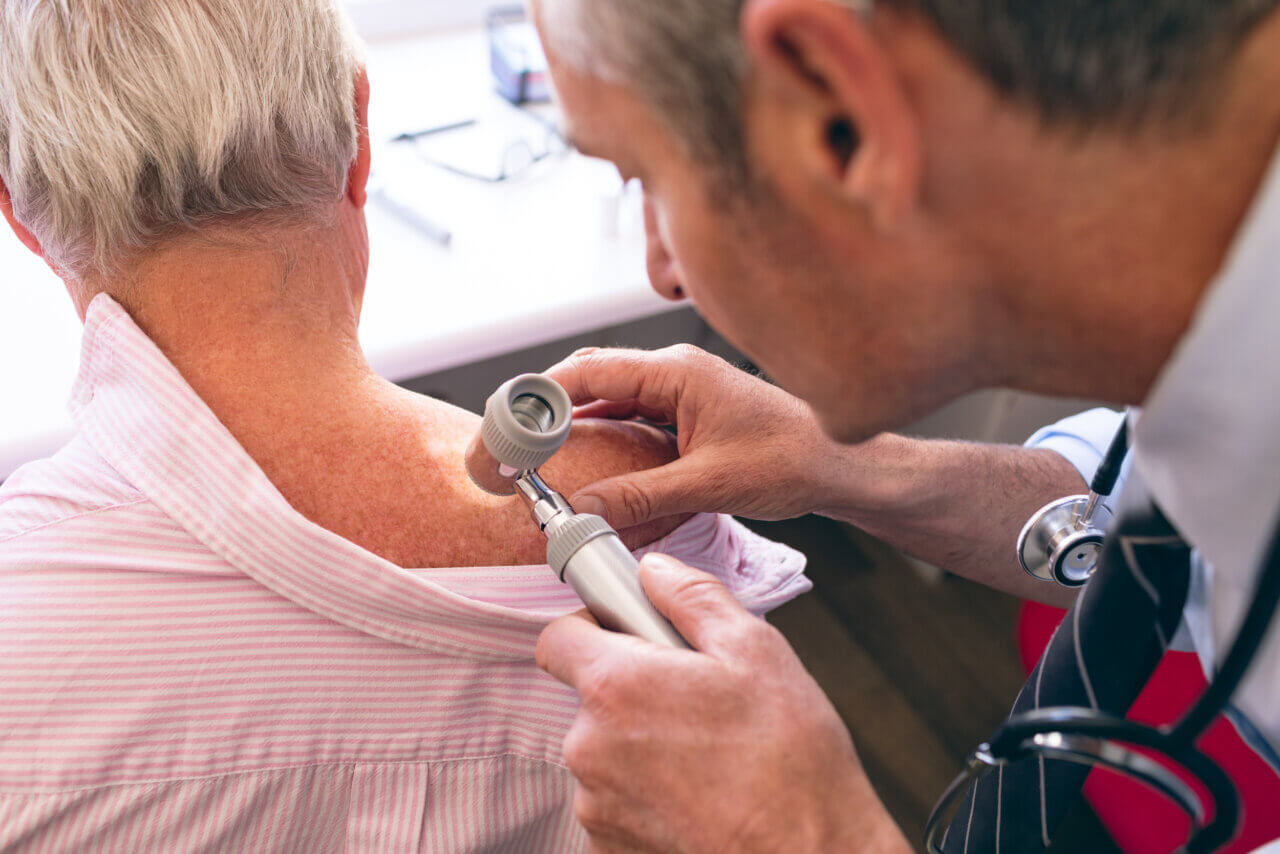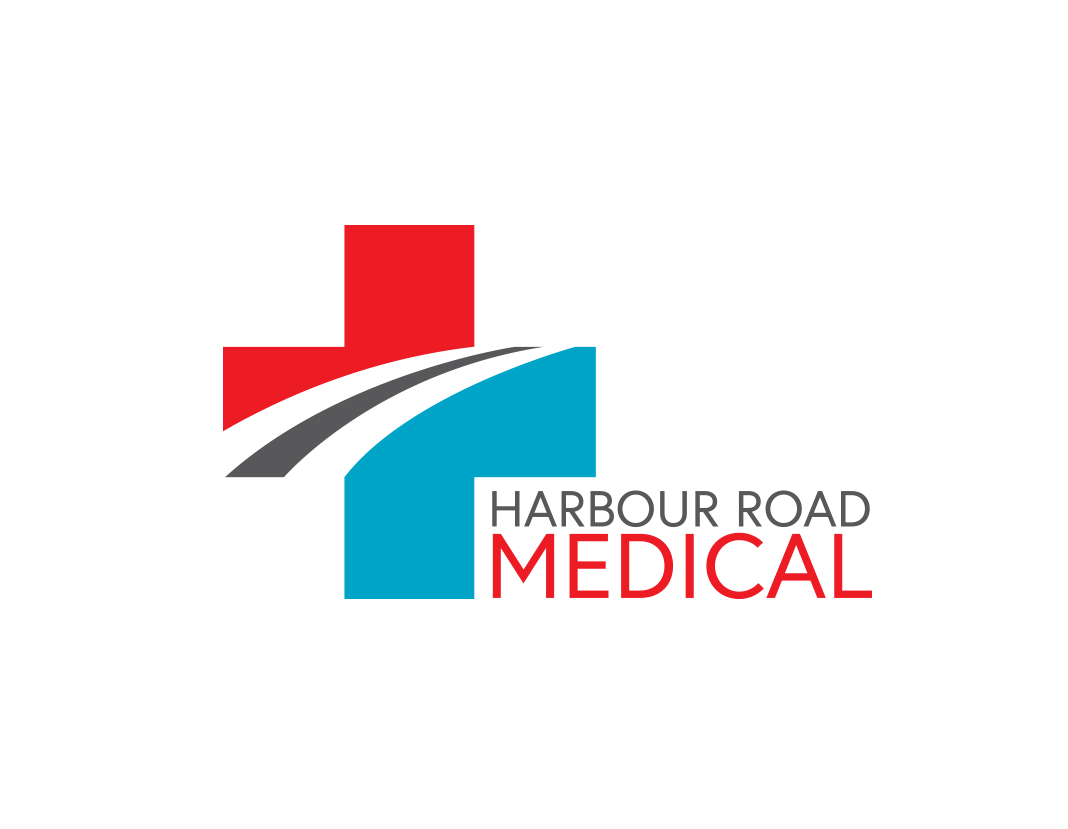Skin Cancer Clinic
Mackay’s skin cancer check and detection specialists
Australia has one of the highest rates of skin cancer in the world and skin cancer is the most common cancer diagnosed in Australia – two in three Australians will be diagnosed with some form of skin cancer before the age of 70. At Harbour Road Medical Centre in Mackay, we believe that early detection of skin cancer is essential. At our Skin Cancer Clinic, we use the latest skin technology to detect and monitor your skin for changes, so you don’t have to.
Dr Sumaira Aurooj is an experienced doctor in Mackay with a post graduate qualification in skin cancer detection and treatment. At your appointment, Dr Aurooj will examine your skin, checking carefully any spots or moles you think are unusual. The following tools will be used to assess and diagnose skin cancers:
- A handheld magnifying instrument called a dermoscope to see the spot/s or moles more closely;
- Skin biopsy – if it’s difficult to tell the difference between a skin cancer and a non-cancerous spot, the doctor may need to take a tissue sample (biopsy) for examination under a microscope. This will confirm the diagnosis.
Book an appointment with Dr Sumaira Aurooj

We use a “smart” dermatoscope that detects and captures an image of the spot/mole and where it is located on the body. This securely integrates with our medical practice software so that we can monitor any new and changes to existing lesions.
Treatment
Skin cancer is treated in different ways. Treatment at our Skin Cancer Clinic depends on:
- The type, size and location of the cancer;
- Your general health;
- Whether the cancer has spread to other parts of your body.
It is important to consult a skin cancer specialist to ensure the most appropriate treatment is undertaken. Dr Awan will discuss treatment options for your skin cancer at your appointment.
Types of skin cancer
The three main types of skin cancer are Basal Cell Carcinoma (BCC), Squamous Cell Carcinoma (SCC) and melanoma. BCC and SCC are also called non-melanoma skin cancers or keratinocytic cancers. Almost 980,000 new cases of BCC and SCC are treated each year. BCC can develop in young people but is more common in people over 40, and SCC occurs mostly in people over 50 years of age.
Basal cell carcinoma (BCC)
Basal cell carcinoma (BCC) starts in the basal cells of the epidermis. It makes up about 70% of non-melanoma skin cancers.
BCCs grow slowly over months and years and rarely spread to other parts of the body. The earlier a BCC is diagnosed, the easier it is to treat. If left untreated, it can grow deeper into the skin and damage nearby tissue, making treatment more difficult. Having one BCC increases the risk of getting another. It is possible to have more than one BCC at the same time on different parts of the body.
BCC develops on areas of the body that have more exposure to the sun, such as the head, face, neck, shoulders, lower arms and lower legs, but can occur anywhere on the body.
This type of skin cancer may appear as a pearl-coloured lump or as a slightly scaly area that is shiny and pale or bright pink in colour; some appear darker. It may bleed and become inflamed or may appear to heal then become inflamed again. It is important to take note of any changes that you notice to your skin so that we can undertake a skin check at our Skin Cancer Clinic.
Squamous cell carcinoma (SCC)
Squamous Cell Carcinoma (SCC) starts in the squamous cells of the epidermis. It makes up about 30% of non-melanoma skin cancers.
SCC tends to grow quickly over several weeks or months. If left untreated, SCC can spread to other parts of the body – this is known as invasive SCC.
SCC usually appears on parts of the body most often exposed to the sun, such as the head, neck, hands, forearms or lower legs, but can start anywhere on the body. SCC on the lips and ears is more likely to spread.
These types of skin cancers may bleed and become inflamed and they are often tender to touch. The cancer generally appears as a thickened, red, scaly or crusted spot or rapidly growing lump. SCC is more common as you get older.
Melanoma
More than 13,000 people are diagnosed with melanoma in Australia each year. Australia and New Zealand have the highest rates of melanoma in the world (reference: Cancer Council Queensland). These statistics demonstrate the need for regular skin checks and early detection by a skin cancer specialist, such as Dr Awan at our Clinic in Mackay.
Melanoma starts in the melanocyte cells of the skin. It makes up 1-2% of all skin cancers. Although melanoma is a less common type of skin cancer, it is considered the most serious because it grows quickly and is more likely to spread to other parts of the body, such as the lymph nodes, lungs, liver, brain and bones, especially if it is not found early. The earlier melanoma is found, the more successful treatment is likely to be.
What are the risk factors
Anyone can develop skin cancer, but it’s more common in older people. The risk is also higher in people who have:
- Fair or freckled skin, especially if it burns easily and doesn’t tan
- Red or fair hair and light-coloured eyes (blue or green)
- Had short, intense periods of exposure to UV radiation, e.g. on weekends or holidays or when playing sport, especially if it caused sunburn
- Actively tanned or used solariums
- Worked outdoors
- A weakened immune system, which could be caused by taking certain medications after an organ transplant (immunosuppressants) or ongoing blood conditions such as chronic leukaemia
- Lots of moles on their body or moles with an irregular shape and uneven colour (dysplastic naevi)
- A previous skin cancer or family history of skin cancer
- Certain skin conditions such as sunspots.
People with olive or very dark skin have more protection against UV radiation because their skin produces more melanin than fair skin does. However, they can still develop skin cancer.
Our climate in Queensland, and particularly in Mackay, is very hot with a large percentage of sunny days each year. Our lifestyles lend themselves to lots of time in the outdoors and therefore a large amount of sun exposure to our skin. Taking preventative measures to minimise sun damage to the skin and having your skin checked regularly by a specialist is the best approach to preventing and reducing the risk of skin cancer.
